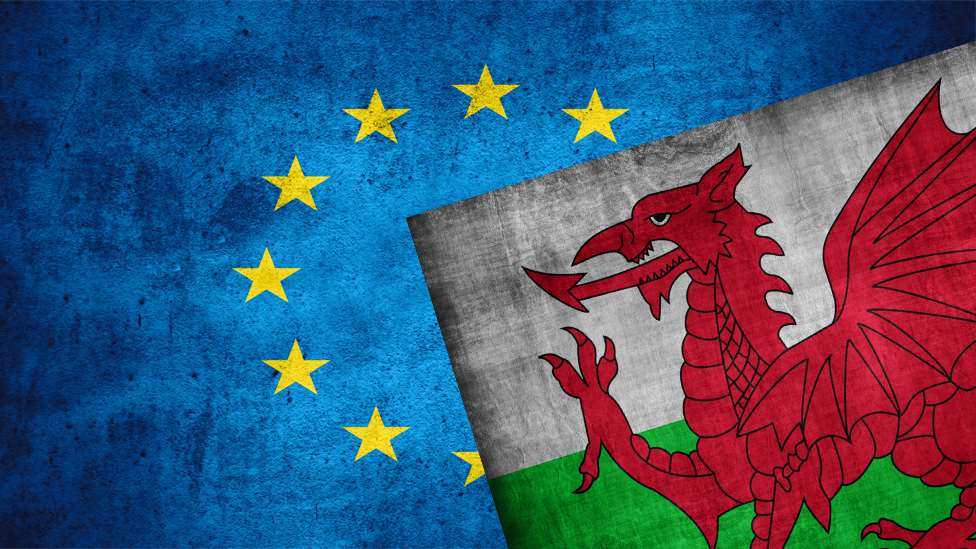Q&A: What is the Welsh EU continuity bill?
- Published

A row over a key piece of Brexit legislation took its latest turn this week with the Continuity Bill.
Assembly members have approved a speedy time-table to pass the legislation, which could get through the assembly by 21 March.
But what is it, and how does it fit in to the Welsh Government's ongoing argument with UK ministers over the EU Withdrawal Bill?

What is the continuity bill?

For a start, it is actually not called that.
The Continuity Bill was the name proposed by Plaid Cymru's Steffan Lewis, who first raised the idea last year.
But the full title of the Welsh Government's proposed law is a mouthful - the Law Derived from the European Union (Wales) Bill.
In simple terms, the bill gives the Welsh Government ministers powers over regulations that the assembly technically has jurisdiction over, but that in practice are dealt with in Brussels.
That's things like agriculture, food regulation and labelling, and environmental regulations. There are 64 areas, detailed in a full list here, external.
The bill would allow ministers to modify existing regulations to allow them to operate after Brexit happens.

Is it needed?
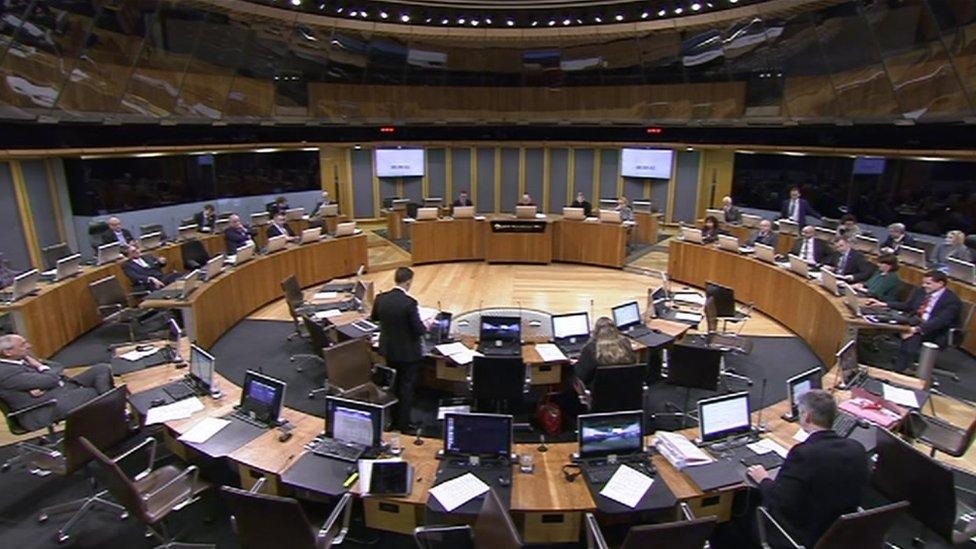
The legislation has been introduced under a quicker timetable than usual
In the Welsh Government's mind, it is unless they can get a deal on a controversial piece of Brexit legislation.
It is about the Welsh and Scottish governments - the latter of which is looking at its own continuity bill - putting pressure on the UK government.
The EU withdrawal bill will put EU law on the UK statute book after Brexit.
Under clause 11 the bill puts the kind of law discussed above in the hands of Westminster ministers - until they decide what to devolve.
It is this bit that has been the subject of negotiations - it has been dubbed a power-grab by the Welsh and Scottish governments.
Welsh and Scottish ministers accept there will need to be frameworks on how the laws work between different parts of the UK.
But they say this should be a matter for negotiation, not something imposed by politicians in London.
The Welsh Government's bill would effectively try to block the controversial clause from coming into effect, and ministers want to get it passed before the Westminster legislation is sorted.

Can AMs do this?

Elin Jones thinks the bill is in the competence of the assembly
The Scottish presiding officer Ken Macintosh put a question mark over the Scottish version of the Continuity Bill when he said the Scottish Parliament did not have the power to pass it.
That did not happen in Wales.
Presiding officer Elin Jones said AMs can pass this legislation - a lengthy statement, external said the main issue was to do with existing laws that prevent ministers from making changes that would be incompatible with EU law.
The bill, the statement said, is written in such a way that it would not allow changes to EU laws to take effect before Brexit, ensuring compatibility with EU law as long as the UK remains a member.

What does the UK government think?

David Lidington has sought to come to an agreement with the Welsh Government
Ministers on the other side of the M4 corridor think the bill is unnecessary.
The UK government said in a statement last week that it would have been better for Welsh ministers to concentrate on getting an agreement on the Withdrawal Bill.
David Lidington, the minister in charge of Brexit legislation negotiations with the devolved administrations, has made concessions to the effect that most of the affected devolved legislation will be devolved.
But that has not been enough for the two devolved administrations, which pressed on with plans for a continuity bill.

Will this end up in the courts?
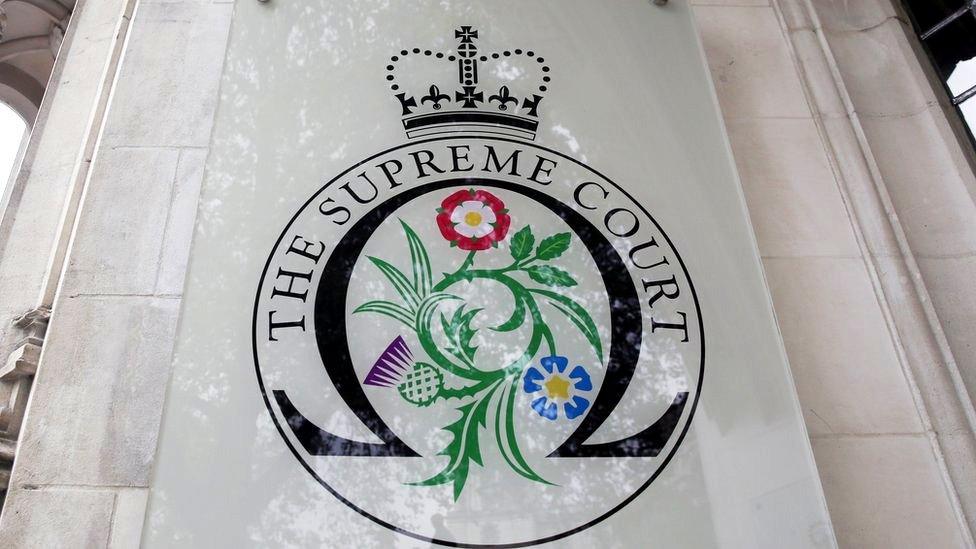
Could the bill end up in the Supreme Court?
The UK government can take legislation that it thinks is not in the power of the assembly to the Supreme Court, and has done before.
No threat to do so has been made, but there have been reports that such a measure is being considered for the Scottish case.
"There's potential for this to be challenged," said Akash Paun, a senior fellow of the Institute for Government think tank, "because it is very unusual legislation".
"There is a bit of a grey area of how this fits within the existing legislative competence" of the assembly he said, saying the presiding officer's view was not a "binding ruling".

Is a deal in sight?
"I don't think either side wants to have a big court battle," Mr Paun said.
Ministers from the three governments are due to meet in London on Thursday and next week, and it could be that a compromise of some kind is found.
"That may lead to the continuity bills being withdrawn, or just not being implemented," Mr Paun said.
While he said it was hard to see what the middle ground was between Westminster and Scotland, and that the Welsh and Scotland governments have been in agreement so far, he suggested the Welsh side may be more open to compromise.
"One does get the impression that they are an easier partner for the UK government to deal with, and in the end the Welsh government recognises more that a deal needs to be done."

Why is agreement with the Scottish and Welsh governments on the EU withdrawal bill needed?
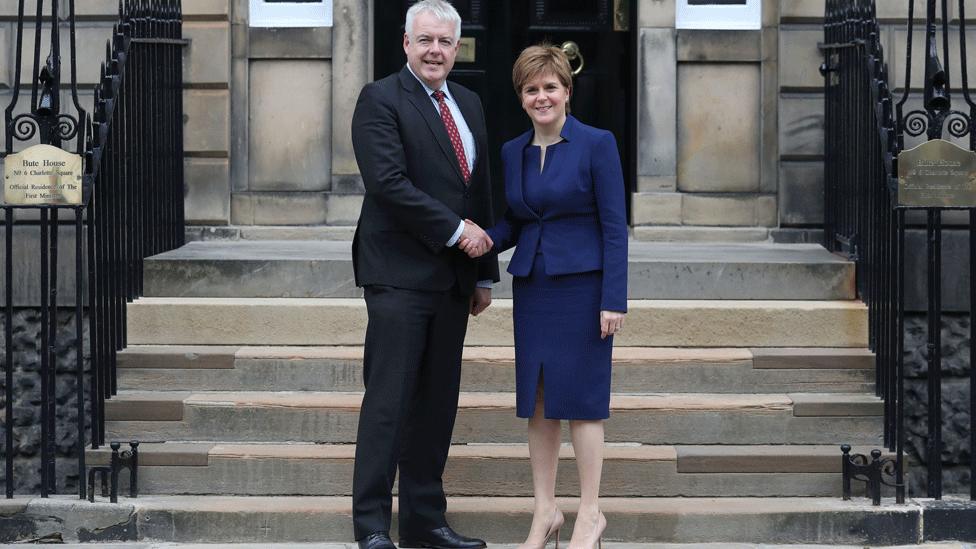
Carwyn Jones and Nicola Sturgeon have been working together on the EU Withdrawal Bill
Because they can cause a constitutional bust-up - the Scottish government potentially more than the Welsh Government.
The EU Withdrawal Bill needs votes passed in the assembly and the Scottish Parliament that will give Westminster permission to legislate.
The process is unhelpfully complicated to explain - while the consent motion votes are required by convention, they are not a legal bar. The votes cannot stop Brexit.
But they have become part of the fabric of how devolution works which UK governments have respected.
A decision to ignore them would cause a larger row than the one we're seeing on the EU Withdrawal Bill now.
It is worth noting, too, that there is the prospect of a second independence referendum although the Scottish Government is holding back on making a decision on whether to push ahead until the end of the year.
- Published6 March 2018

- Published6 March 2018
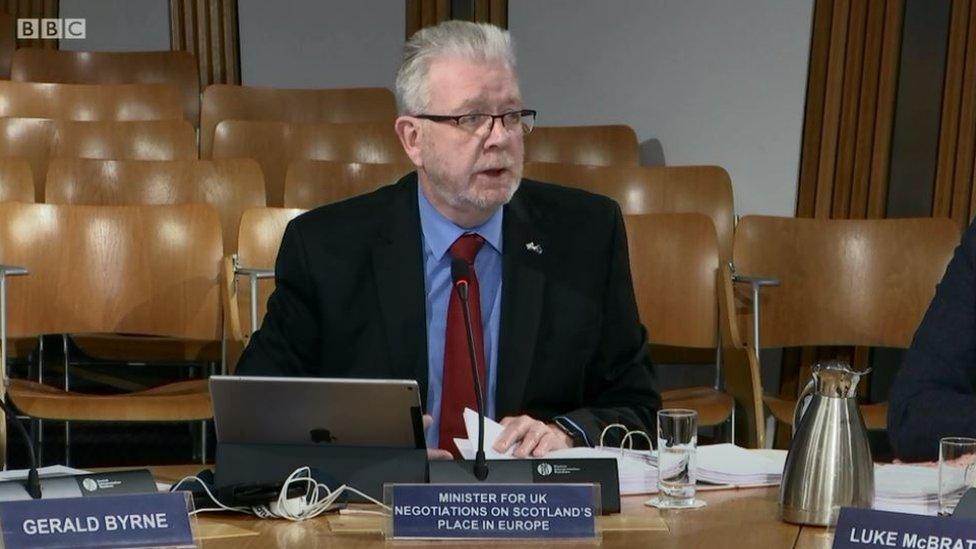
- Published26 February 2018
